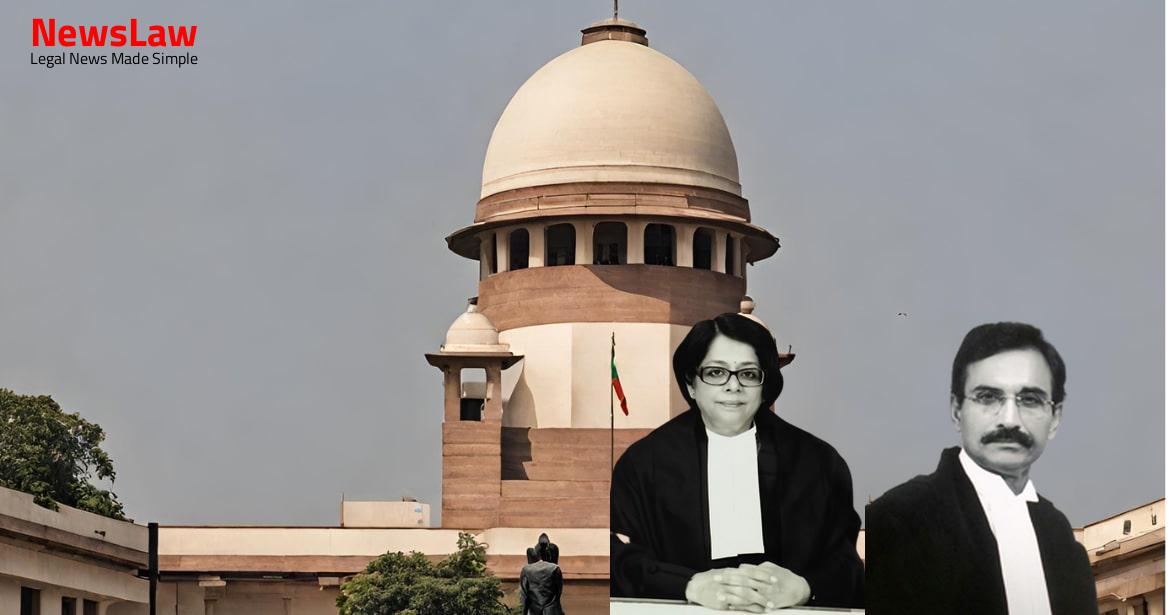The procedure for the selection and appointment of Heads of Institutions and Teachers in minority institutions is provided in Section 16-FF of the Act and Regulation 17 of the Regulations. By the orders impugned before us, the High Court held that, once the Management forwards the names for approval of the DIOS, the selection process concludes and the proposed candidates acquire a vested right to be appointed. 1882 and 1883 of 2023 : Rakha Balika Inter College, Fatehgarh, Farrukabad, U.P., hereinafter referred to as the Respondent College, is a recognized aided minority institution, imparting education up to the level of intermediate. The DIOS, by his letter dated 08.03.2018, informed the Management that the proposal for approval is incomplete and therefore suggested that necessary information with supporting documents may be furnished for the grant of approval.
Consequently, the DIOS, by its letter dated 14.03.2018, returned the applications to the Respondent College with a request to process the proposal as per the amended Regulations. The learned Single Judge held that the order of the DIOS dated 11.10.2018 was in contravention of the earlier direction of the Court dated 07.05.2018 and therefore directed the personal presence of the DIOS, Farrukabad. The connected Civil Appeal No 1883 of 2023 arises out of the subsequent order of the Single Judge dated 16.01.2019, directing the DIOS to comply with the original directions under order dated 07.05.2018.
They have submitted that the Single Judge, as well as the Division Bench, committed a serious error in assuming that the selection process was complete before the amendment dated 12.03.2018 had come into force. Shristi Gupta, and Shri Abhishek Sharma, learned Advocates appearing on behalf of the Respondents in Civil Appeal No 1884 of 2023, supported the decisions of the High Court. (ii) Whether the Act, read with the Rules and Regulations made thereunder, contemplates ‘deemed appointment’ if the approval of the DIOS is not given within a period of 15 days? The Management is empowered to appoint Teachers as well as the Head of the Institution as per the procedure prescribed in the Act, and the Regulations made thereunder. To consider the submissions of the Respondents that the candidates whose names are recommended by the Management for approval by the DIOS acquire a vested right to be appointed as Teachers, it is necessary to examine Section 16-FF: 16-FF. (5) Where the Regional Deputy Director of Education or the Inspector, as the case may be, does not approve of a candidate selected under this section, the Committee of Management may, within three weeks from the date of receipt of such disapproval, make 13 a representation to the Director in the case of the Head of Institution, and to the Regional Deputy Director of Education in the case of a teacher. If the expressions ‘ no person’, ‘ shall be appointed’, and ‘ unless’ employed in sub-section (3) are given their ordinary meaning, which is the foremost of the linguistic canons of construction of legislation, we have no hesitation in holding that appointment is subject to the mandatory approval of DIOS.
It is correct that the competent authority has power to relax the qualification but then again it is not disputed that the competent authority did not relax the qualification for the appointment of the appellant as Principal of the Higher Secondary School of the respondent…. She did not possess qualifications to be appointed as Principal of the Higher Secondary School. Regulation 18, is as under: “(1) Within fifteen days of the receipt of the recommendation of the Selection Committee constituted under sub-section (1) or (2) of Section 16-F, and in case of an institution referred to in Section 16-FF, the approval of the authority specified therein, the Manager shall, on authorisation under resolution of the Committee of Management, issue an order of appointment by Registered Post to the candidate in the form given in Appendix ‘B’ requiring the candidate to join duty within ten days of the receipt of such order, failing which 16 the appointment of the candidate will be liable to cancellation.
Also Read: https://newslaw.in/case-type/criminal/alleged-misuse-of-official-position-courts-legal-analysis/
According to which, where the recommendation is made by a Selection Committee constituted under sub-section (1) or (2) of Section 16-F of the Act, an order of appointment is to be issued within 15 days of the receipt of the recommendation of the Selection Committee.
Additionally, sub-section (4) of Section 16-FF of the Act has to be read in conjunction with Section 16-FF(2) therein, which provides that “ [t]he procedure to be followed by the Selection Committee referred to in sub-section (1) shall be such as may be prescribed ”. Sub-section (5) of section 16-FF provides the remedy to the College Management in the event the DIOS does not grant an approval. We have also held that the legal regime concerning the appointment of Teachers does not contemplate any concept of deemed appointment if the DIOS does not decide upon the proposal within 15 days.
It is by now a settled proposition of law that a candidate has the right to be considered in the light of the existing rules, which implies the “rule in force” on the date the consideration took place. Thus, it cannot be accepted that any accrued or vested right of the appellants has been taken away by the amendment.” While reaffirming the above referred principle, in a subsequent case of Rajasthan State Sports Council and Anr. Union of India, Deepak Agarwal v. It is now a settled proposition of law that a candidate has a right to be considered in the light of the existed rules, which implies the “rule in force” as on the date consideration takes place.
When there is no statutory duty cast upon the State to consider appointments to vacancies that existed prior to the amendment, the State cannot be directed to consider the cases.” (emphasis supplied)
In view of the clear enunciation of the law, we have no hesitation in rejecting the submission made by the learned counsels for the Respondents, that the vacancies that existed prior to the amendment of Regulation 17 of Chapter II, must be governed by unamended rules. For the reasons stated above, Civil Appeal No 1882 of 2023, Civil Appeal No 1883 of 2023, and Civil Appeal
Case Title: THE STATE OF UTTAR PRADESH Vs. RACHNA HILLS (2023 INSC 441)
Case Number: C.A. No.-001882-001882 / 2023



